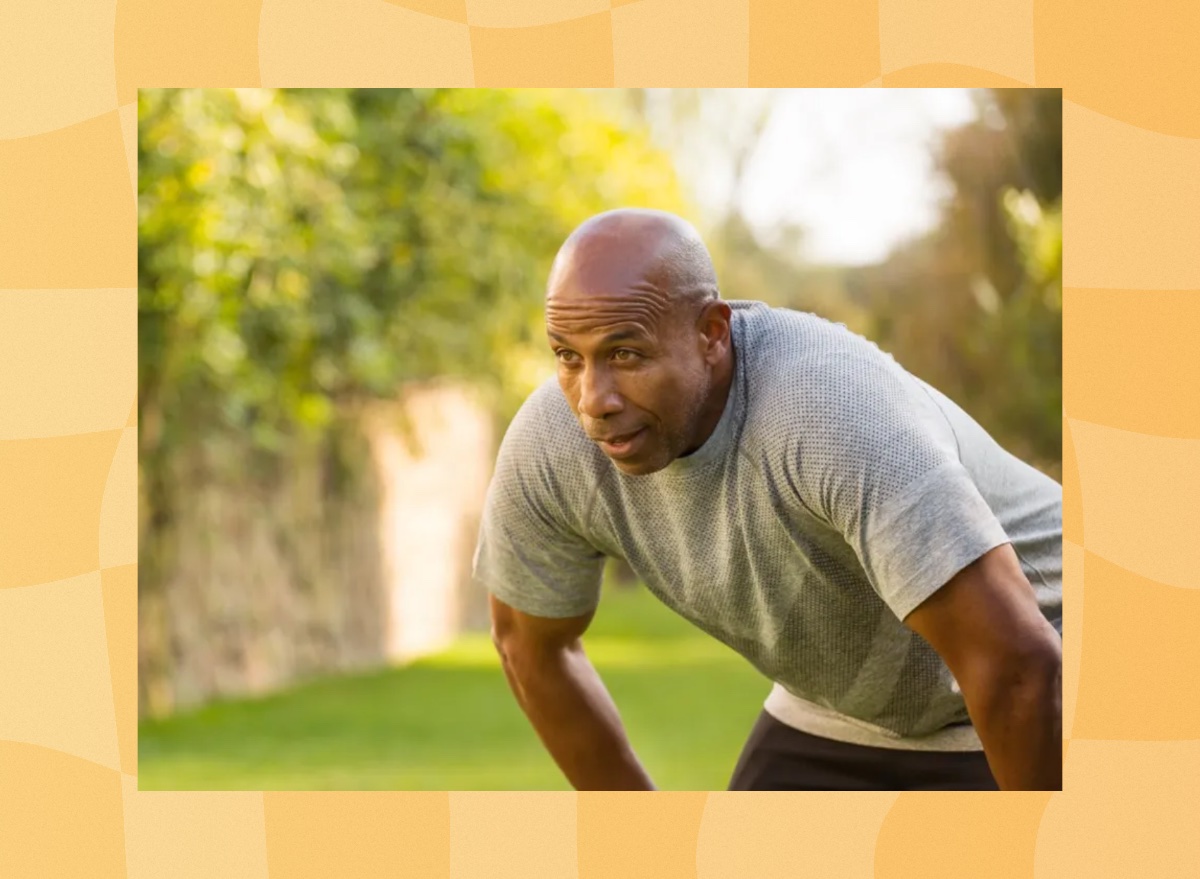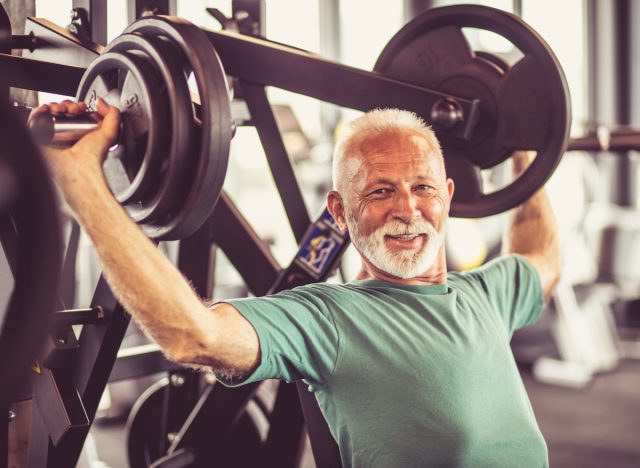4 Exercise Mistakes That Can Shorten Your Lifespan

Given the choice, would you choose to live forever? It's a question humans have been asking themselves for thousands of years, but immortality is probably better off as a fantasy. Eternal life would undoubtedly get pretty boring after the first 500 or 5,000 years. While immortality may be the perfect illustration of it being very possible to have "too much of a good thing," there's nothing wrong with striving for a full, healthy life. That's why we've put together some common exercise mistakes that can shorten your lifespan.
At the core of any effective longevity strategy is exercise. Piles of scientific and medical research tell us that exercising consistently is an absolute pillar of healthy living well into old age. For instance, research from the American Heart Association concludes that simply walking more, in general, promotes a longer life. The life-extending benefits of exercise are myriad and constantly expanding the more we understand about the human body.
Generally, the message is simple: Exercising will help you live longer. The devil is in the details, however, and it's important to keep in mind that various exercise mistakes and miscues can sabotage even the most well-intentioned longevity efforts.
In This Article:
- You're Doing Too Much Too Often
- You're Worrying About Exercise
- You're Sweating in Smog
- You're Focusing On Strength Over Power
You're Doing Too Much Too Often

Listening to your favorite song in the gym may make you feel like you can run for hours on end, but it's so important to approach your workouts realistically. A solid workout should be tough, but there is absolutely a limit. And, while there's no shortage of exercise routines out there to choose from, no trainer or influencer knows your body as well as you do. If a workout feels like too much, or a weight feels too heavy, it probably is.
Similarly, you don't need to get into an intense, strenuous workout seven days per week. In fact, recent research even suggests too much regular strenuous activity can actually shorten lifespan. Another research project published in Cell Metabolism lends further credence to the idea that too much exercise can spoil a good thing. Study authors conclude that performing HIIT (high-intensity interval training) workouts too often can hinder mitochondrial functioning and increase insulin resistance.
You're Worrying About Exercise

Exercise is usually one of life's great solutions, but sometimes we can't help but make it a big problem. If you recently began a new exercise routine and constantly beat yourself up psychologically if you miss a workout or specific fitness goal, remember to cut yourself some slack. It just may save your life!
A study published in Health Psychology found that worrying too much about not exercising enough may shorten lifespan. Study authors analyzed over 61,000 Americans to reach this conclusion. "Individuals who thought they were less active than other people their age were more likely to die, regardless of health status, body mass index, and so on," lead study author and Stanford University psychologist Alia Crum explained to NPR.
You're Sweating in Smog

The benefits of exercising outdoors are well-documented, but you should always avoid areas with high air pollution if at all possible. Often termed "smog," air pollution is usually caused by the burning of coal, car exhausts, and wildfires, just to name a few sources.
Characterized by the presence of "particulate matter," or microscopic bits of dirt, soot, dust, and smoke tiny enough to be inhaled, air pollution exposure is linked to an ever-expanding list of health issues. Suffice to say, avoiding outside areas with any significant amount of air pollution is a very good idea while planning an outdoor workout.
If you live in an area known to experience air pollution from time to time, keep track of air readings and adjust your workouts accordingly.
You're Focusing On Strength Over Power

The words "power" and "strength" may sound synonymous, but research tells us that prioritizing power over strength can pay longevity dividends. Strength, of course, refers to how much weight one can lift. Power, on the other hand, accounts for both force and speed. When a strenuous activity, such as climbing a set of stairs or performing a pull-up, can be completed in a faster manner, power is increasing.
A study presented by the European Society of Cardiology reports that focusing on muscle power is much more helpful when it comes to longevity.
"Rising from a chair in old age and kicking a ball depend more on muscle power than muscle strength, yet most weight-bearing exercise focuses on the latter," explained study author Claudio Gil Araújo, professor and director of research and education at the Exercise Medicine Clinic – CLINIMEX in Rio de Janeiro. "Our study shows for the first time that people with more muscle power tend to live longer."
Want to add some explosiveness to your workouts and start increasing muscle power? Study authors suggest choosing semi-heavy weights that are still a challenge but not a struggle. Then, perform one to three sets of six to eight repetitions as fast as possible while maintaining good form. Be sure to rest for 20 seconds between each set.
- Source: https://newsroom.heart.org/news/taking-more-steps-daily-may-lead-to-a-longer-life?preview=7bc8
- Source: https://www.nature.com/articles/s41599-020-0476-6
- Source: https://www.cell.com/cell-metabolism/fulltext/S1550-4131(21)00102-9
- Source: https://www.apa.org/pubs/journals/releases/hea-hea0000531.pdf
- Source: https://www.niehs.nih.gov/health/topics/agents/air-pollution









